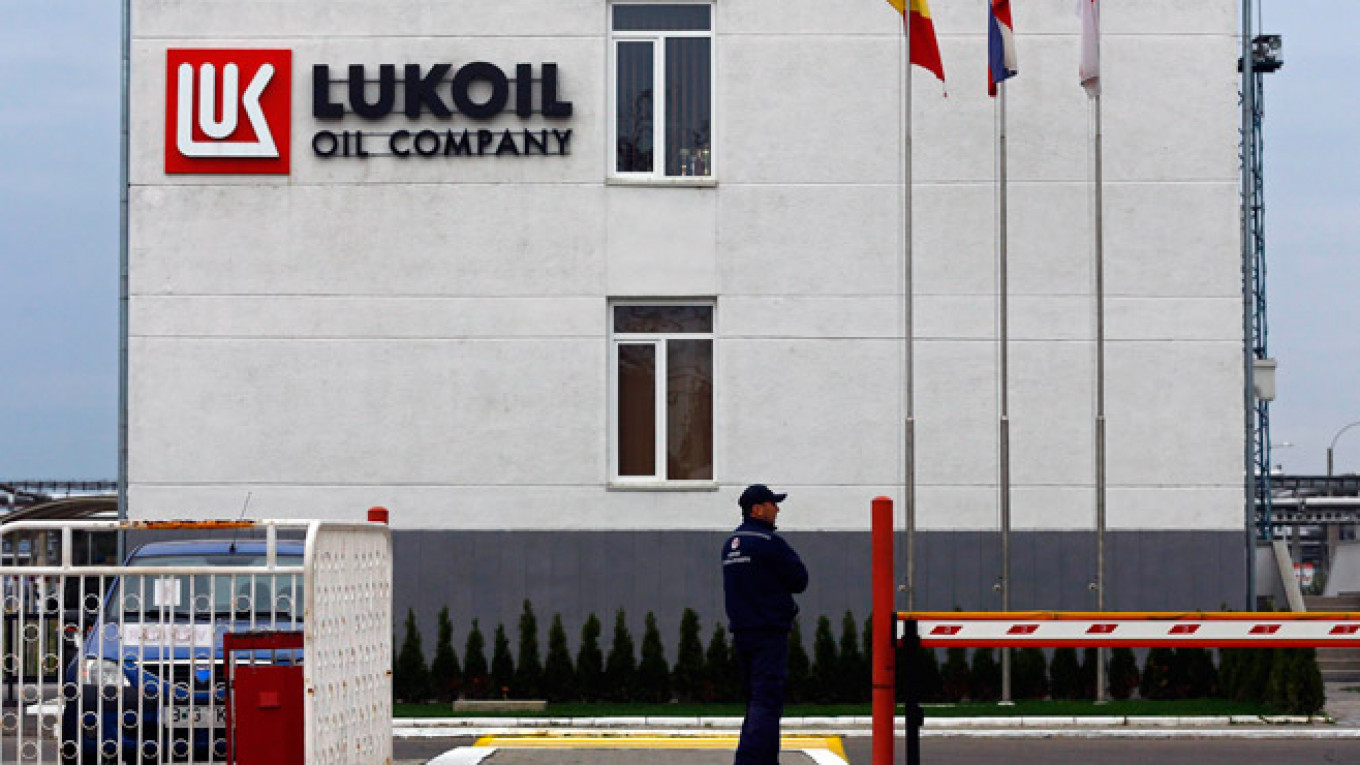While the future of the gigantic South Stream natural gas pipeline from Russia to Europe remains mired in uncertainty, an alternative project is gaining momentum.
LUKoil Overseas, the international subsidiary of Russia's largest private oil company, has asked the European Bank for Reconstruction and Development (EBRD) for a $1 billion loan to further develop the Shah Deniz gas field in Azerbaijan, the Prime news agency reported late Monday, citing EBRD materials.
Shah Deniz — Azerbaijan's largest gas field — aims to deliver gas from the Caspian Sea to Turkey and Europe. When fully utilized, output is expected to rise from the current 9 billion cubic meters per year to 25 billion cubic meters. Ten billion of this is to be sent to Greece, Italy and Bulgaria via the Trans Adriatic Pipeline, work on which is expected to start next year.
The $28 billion Shah Deniz project unites a consortium of European energy companies, led by BP. LUKoil owns a 10 percent share.
The EBRD played a crucial role in the field's initial development, providing LUKoil in 2005 with loans of $180 million, and SOCAR — Azerbaijan's state oil company — with another $170 million. In February, the bank granted a further $200 million to develop Caspian gas reserves.
Gas supplies from Shah Deniz to Turkey are set to start in 2018 and to Europe in 2019 — just when the South Stream pipeline from Russia is to open, despite objections from Brussels that have dogged its construction schedule.
The EU has redoubled its efforts to curb its reliance on Russian gas as the ongoing Ukraine crisis has poisoned its relations with Moscow. Russia's Gazprom supplied last year 160 billion cubic meters to Europe, or a third of the continent's consumption.
But the 10 billion cubic meters of planned annual gas supplies from Shah Deniz is no match for South Stream's 63 billion cubic meter capacity. However, if not for all Europe, the Caspian field could be an alternative source of gas for southern European countries like Bulgaria, which imports 100 percent of its gas from Russia.
Contact the author at [email protected]
A Message from The Moscow Times:
Dear readers,
We are facing unprecedented challenges. Russia's Prosecutor General's Office has designated The Moscow Times as an "undesirable" organization, criminalizing our work and putting our staff at risk of prosecution. This follows our earlier unjust labeling as a "foreign agent."
These actions are direct attempts to silence independent journalism in Russia. The authorities claim our work "discredits the decisions of the Russian leadership." We see things differently: we strive to provide accurate, unbiased reporting on Russia.
We, the journalists of The Moscow Times, refuse to be silenced. But to continue our work, we need your help.
Your support, no matter how small, makes a world of difference. If you can, please support us monthly starting from just $2. It's quick to set up, and every contribution makes a significant impact.
By supporting The Moscow Times, you're defending open, independent journalism in the face of repression. Thank you for standing with us.
Remind me later.






